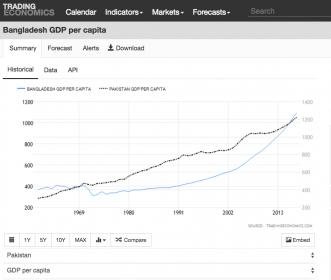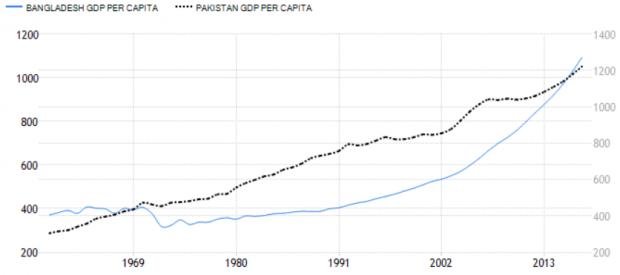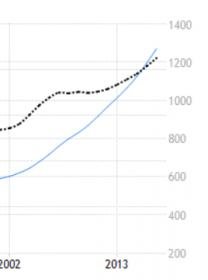- Joined
- Oct 2, 2004
- Runs
- 218,086
DHAKA: Bangladesh stepped up security Saturday in a bid to contain violence during a general election expected to see Prime Minister Sheikh Hasina win a record fourth term.
ADS BY BUZZEFF TV
Authorities have deployed around 600,000 police, army and other security forces ahead of Sunday's vote, a senior official said, following a deadly campaign marred by clashes.
The forces -- which also include the elite Rapid Action Battalion, navy, border and coast guards and auxiliary police units -- are providing security to some 40,000 election booths.
"We have ensured the highest level of security in Bangladesh as per the capacity of the country," Rafiqul Islam of the election commission told AFP.
"We hope there will be a peaceful atmosphere," he said.
Clashes have gripped the Muslim majority country of 165 million in the run-up to the polls.
Thirteen people have been killed and thousands injured in skirmishes between supporters of Hasina's ruling Awami League and activists of the opposition Bangladesh Nationalist Party (BNP).
The BNP, which boycotted the 2014 election, says its supporters have been deliberately targeted in a a bid to deter them from voting and rig the election in Hasina's favour.
The Awami League and BNP are leading their own alliances in the country's 11th parliamentary polls since independence in 1971.
The BNP, whose leader Khaleda Zia is in prison on graft charges, has accused the election commission of bias during the electoral campaign -- a charge rejected by its chief commissioner, KM Nurul Huda.
The opposition says that some 14,000 of its activists have been detained since the election schedule was announced on November 8. It also alleges that around 12,000 activists were injured in attacks by ruling party followers. The ruling party denies the allegation.
Rafiqul Islam said election authorities were still hopeful the vote would be credible. The United States has raised concerns about the elections while the United Nations called for greater efforts to make the vote fair.
"We're trying our best to have a free and fair election," he said.
Islam added that authorities may slow down internet speeds on election day in an effort to "prevent the spread of rumours", that could trigger unrest.
The country's telecoms regulator shut down higher speed internet services on Thursday before restoring them on Friday morning.
The election commission has also imposed restrictions on public transport and cars on polling day in an effort to maintain security and "conduct the election smoothly", he said.
https://www.ndtv.com/world-news/ban...urity-forces-ahead-of-elections-today-1969734
ADS BY BUZZEFF TV
Authorities have deployed around 600,000 police, army and other security forces ahead of Sunday's vote, a senior official said, following a deadly campaign marred by clashes.
The forces -- which also include the elite Rapid Action Battalion, navy, border and coast guards and auxiliary police units -- are providing security to some 40,000 election booths.
"We have ensured the highest level of security in Bangladesh as per the capacity of the country," Rafiqul Islam of the election commission told AFP.
"We hope there will be a peaceful atmosphere," he said.
Clashes have gripped the Muslim majority country of 165 million in the run-up to the polls.
Thirteen people have been killed and thousands injured in skirmishes between supporters of Hasina's ruling Awami League and activists of the opposition Bangladesh Nationalist Party (BNP).
The BNP, which boycotted the 2014 election, says its supporters have been deliberately targeted in a a bid to deter them from voting and rig the election in Hasina's favour.
The Awami League and BNP are leading their own alliances in the country's 11th parliamentary polls since independence in 1971.
The BNP, whose leader Khaleda Zia is in prison on graft charges, has accused the election commission of bias during the electoral campaign -- a charge rejected by its chief commissioner, KM Nurul Huda.
The opposition says that some 14,000 of its activists have been detained since the election schedule was announced on November 8. It also alleges that around 12,000 activists were injured in attacks by ruling party followers. The ruling party denies the allegation.
Rafiqul Islam said election authorities were still hopeful the vote would be credible. The United States has raised concerns about the elections while the United Nations called for greater efforts to make the vote fair.
"We're trying our best to have a free and fair election," he said.
Islam added that authorities may slow down internet speeds on election day in an effort to "prevent the spread of rumours", that could trigger unrest.
The country's telecoms regulator shut down higher speed internet services on Thursday before restoring them on Friday morning.
The election commission has also imposed restrictions on public transport and cars on polling day in an effort to maintain security and "conduct the election smoothly", he said.
https://www.ndtv.com/world-news/ban...urity-forces-ahead-of-elections-today-1969734










